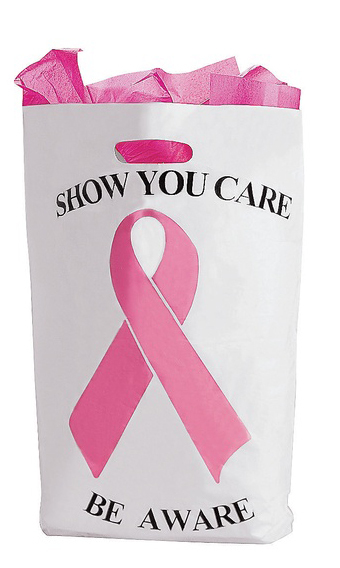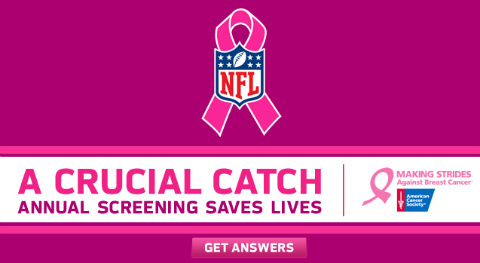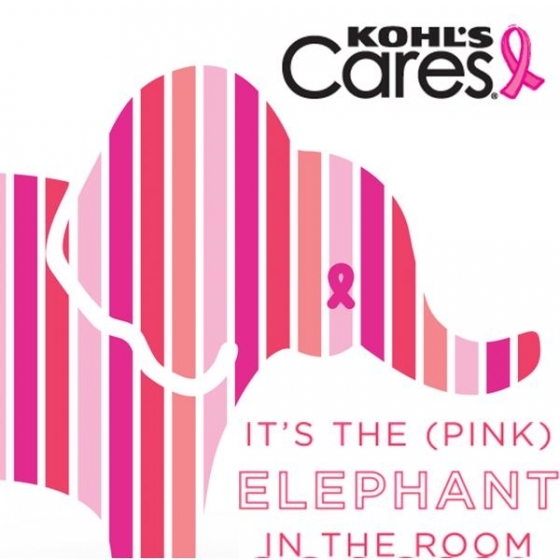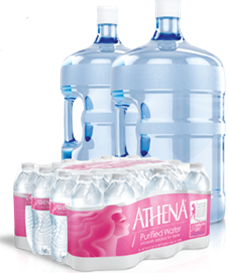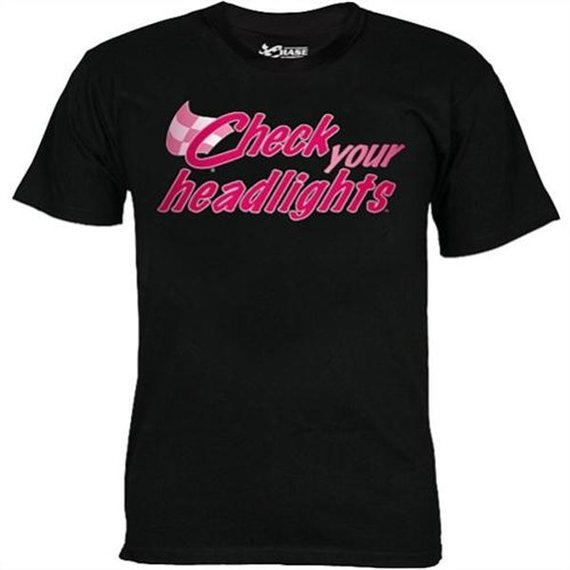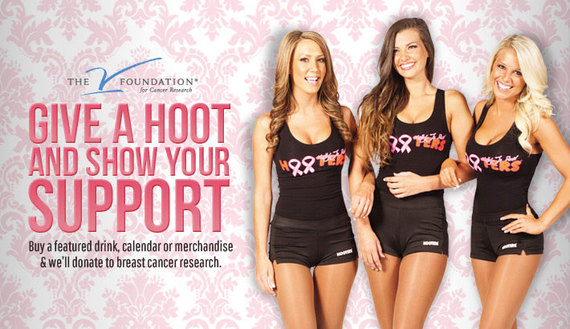It's Breast Cancer Industry Month and the pink floodgates have opened. And again we ask: what have all these pink ribbon products and promotions done for women living with and at risk of breast cancer?
Together, over the years, we've changed the landscape of pink ribbon marketing. Pinkwashing is now a household word. People understand that you always have to "follow the money" in pink ribbon marketing. We've exposed the hypocrisy in pink ribbon fundraising and achieved some momentous wins against corporations.
This October, we're taking it further and targeting some of the most outrageous pink ribbon promotions that exemplify everything that's wrong with pink ribbon culture. We're calling out the empty awareness, the misinformation, the profiteering,the pinkwashing, the degrading of women, the "tyranny of cheerfulness" that hides the harsh realities of this disease.
We're sick of marketing giants raking in billions of pink ribbon dollars while women continue to be diagnosed with and die from this disease.
Pink ribbon culture distracts from meaningful progress on breast cancer in six fundamental ways:
1. Pink ribbon products spread empty awareness. "Awareness" has failed to address and end the breast cancer epidemic. Who isn't aware of breast cancer these days? Pink ribbon trinkets on store shelves that promote "awareness" ultimately change nothing. We have more than enough awareness, but not nearly enough action that will make a significant difference to whether women get breast cancer or survive it. By making the public think "awareness" is the end goal, pink ribbon culture defuses anger about breast cancer and its devastating impact, and distracts us from the meaningful actions that will achieve health justice for us all. Oriental Trading, for example, is spreading empty awareness via its endless supply of plastic pink ribbon trinkets -- the company pockets all the money from these sales!
Instead of more meaningless gestures that defuse righteous anger and distract us from the real issues, we need bold action to address and end the epidemic.
2. Pink ribbon promotions spread misinformation. Whether by over-inflating women's risk of developing breast cancer, spreading the myth that "early detection is your best protection," focusing on a five-year cure rate for a disease that remains a risk throughout a woman's life, or other ways of cheerfully fudging the statistics, many pink ribbon promotions fail to tell the whole truth. These inaccuracies allow pink ribbon marketers to manipulate consumers' emotions through fear-mongering and false promises--in order to sell more products. The NFL, for example, is spreading misinformation about breast cancer by repeating disproven and misleading advice about mammography screening in their "Crucial Catch" campaign.
Breast cancer campaigns must offer evidence-based information that does not fuel fear or offer empty promises in the attempt to sell pink products.
3. Corporations exploit concern about breast cancer for profit. Each October, marketers take advantage of people's sincere concern about breast cancer to make money and generate good publicity. Companies sell products, make profits, and seek customer goodwill by claiming to care about breast cancer. Yet, most of these promotions ultimately benefit corporations far more than they help women living with and at risk of breast cancer. By tapping into our generosity and genuine desire to help, these companies avoid transparency about where the pink ribbon money goes and too often leave consumers unable to accurately evaluate the promises made in product advertising. Kohls' recent "Pink Elephant in the Room" promotion, for example, was outrageous profiteering; it exploited concern for women affected by breast cancer to make millions for the company.
Companies and charities must honor people's good intentions with full transparency and accountability in their breast cancer fundraising and marketing.
4. Some pink ribbon products are linked to causing breast cancer. Years ago, Breast Cancer Action came up with a term for this, pinkwashing: the outrageous corporate practice of selling products linked to an increased risk of breast cancer while claiming to care about (and profiting from) breast cancer. It is outrageous and deeply hypocritical for companies to make money and gain customer goodwill from products that increase the risk of the very disease they claim to care about! Alhambra Water, for example, is pinkwashing by selling plastic polycarbonate water bottles which contain BPA, a hormone-disrupting chemical linked to breast cancer.
Companies that claim to care about breast cancer should make sure their own products and services don't increase women's risk of breast cancer.
5. Pink ribbon promotions often degrade women by objectifying and sexualizing women's breasts and bodies. From "save the boobies" to "save the ta-tas" to "save second base," campaigns like these demean and insult women--and distract from the true focus of saving women's lives. They highlight narrow standards of beauty (thin, white, able-bodied, and young), depict women as coy sex-objects and too often promote the fantasy of "perfect" breasts. These sexy/cute campaigns hide the lived experiences of women in all their diversity and complexity. NASCAR, for example, is selling breast cancer awareness t-shirts that say "Check Your Headlights" which degrade women by objectifying and sexualizing women's breasts and bodies.
We must honor women's rich complexity and full diversity, rather than obsess over narrowly defined body parts as the focus of breast cancer campaigns.
6. Pink ribbon culture obscures the harsh reality of breast cancer by creating a single story of triumphant survivorship based on positive thinking, beauty tips, and sanitized, carefully chosen images of women living with the disease- and sometimes women who do not even have breast cancer. Breast cancer is not pretty and pink, and many women who "fight hard," "fight like a girl," and try to "beat breast cancer" develop metastatic cancer and still die from the disease. Breast cancer is only profitable when it's palatable, and the pink ribbon covers up the devastating, harsh reality that so many women and their loved ones are dealing with. Hooters' breast cancer campaigns, for example, obscure the harsh reality of breast cancer by promoting a story of triumphant survivorship based on positive thinking, beauty tips, and sanitized, carefully chosen images of women.
We must value all women living with and at risk of breast cancer and recognize the hard realities of breast cancer, including and especially metastatic disease.
If these marketing giants really care about addressing breast cancer, they'll Stop the Distraction! They'll take bold action, provide evidence-based information, be accountable and transparent in their fundraising, stop degrading women, value women's diversity, and stop hiding the harsh realities of this disease.
Whether you are joining us for the first time or are a long-time Breast Cancer Action activist, thank you for taking action with us and demanding real progress on breast cancer.


